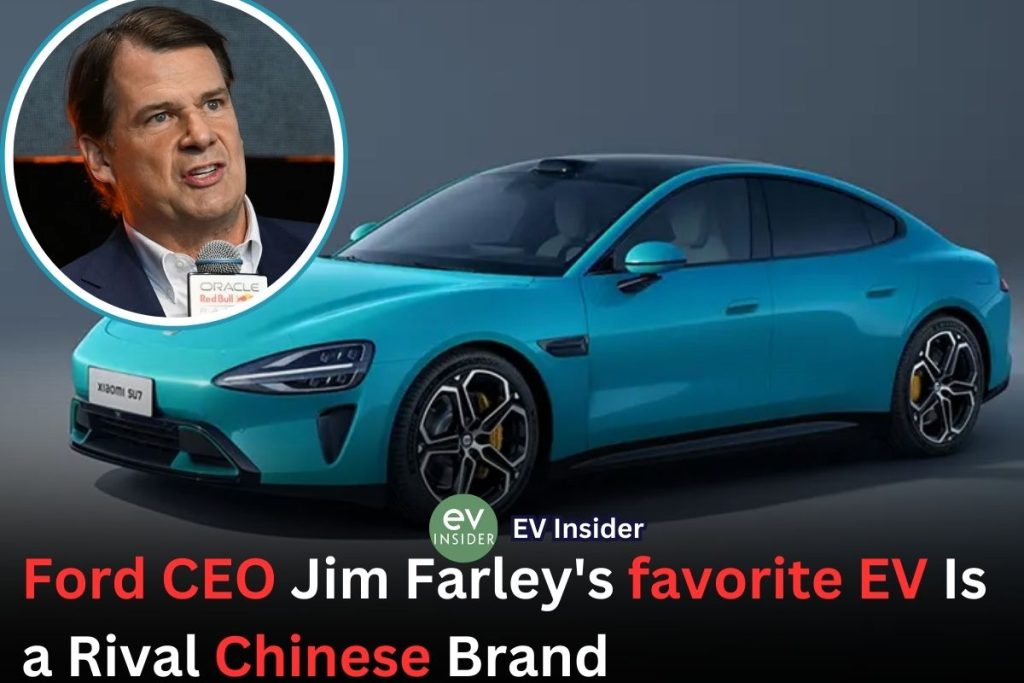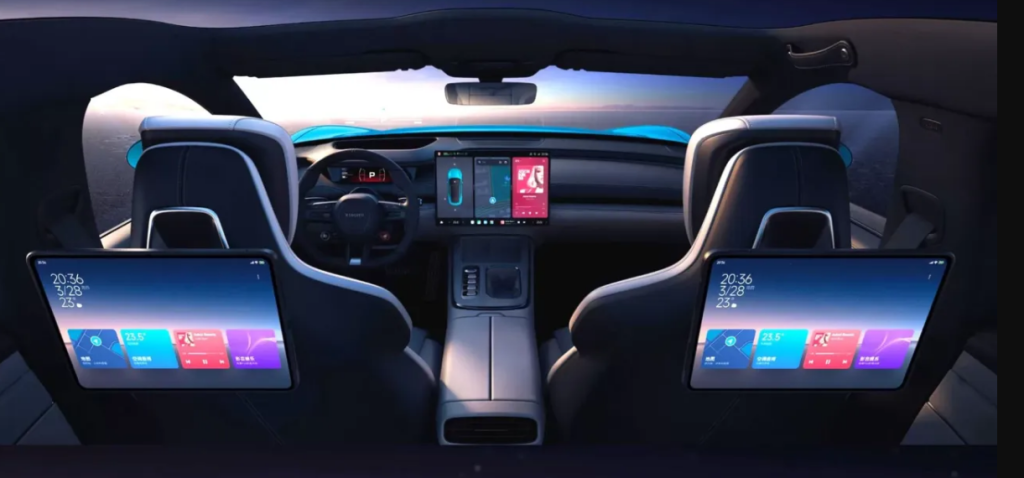Ford CEO Jim Farley Has Been Driving Xiaomi’s EV For Six Months And “Doesn’t Want To Give it Up”
Ford CEO Jim Farley has recently made headlines for his candid remarks about the Xiaomi SU7, an electric vehicle (EV) produced by the Chinese tech giant Xiaomi. During an interview on “The Fully Charged Podcast,” Farley revealed that he has been driving the Xiaomi SU7 for the past six months and expressed his reluctance to part with it. This statement not only highlights Farley’s personal experience but also underscores the competitive landscape of the EV market, particularly in relation to Chinese manufacturers.




Farley’s Experience with Xiaomi’s SU7
In his interview, Farley described Xiaomi as an “industry juggernaut,” emphasizing the company’s rapid success in the EV sector. He noted that Xiaomi sells between 10,000 to 20,000 units of the SU7 monthly and that they are sold out for six months ahead. This level of demand reflects Xiaomi’s strong position in a market increasingly dominated by Chinese automakers. Farley did not specify which version of the SU7 he was driving, as Xiaomi offers three variants: SU7, SU7 Pro, and SU7 Max.
Farley shared his enthusiasm for the vehicle, stating, “It’s fantastic… I don’t want to give it up.” His comments came after Ford’s own struggles in the EV market, where they reported significant losses attributed to their electric vehicle segment. This context makes Farley’s praise for a competitor particularly noteworthy.
The Financial Context of Xiaomi’s EV Venture
Despite the popularity of the SU7, Xiaomi’s entry into the automotive industry has not been without challenges. In its second-quarter earnings report, Xiaomi disclosed an adjusted loss of $252 million from its EV division. This translates to a loss of approximately $9,200 per vehicle sold during that quarter.
The base price for the SU7 is around 215,900 yuan (approximately $30,000), and it is currently only available in China. A spokesperson for Xiaomi indicated that they are working to reduce production costs and scale up their operations to address these financial challenges.
Farley’s Perspective on Competition
Farley’s remarks about driving competitors’ vehicles reflect a broader strategy within Ford to understand and respond to market dynamics effectively.
He stated on social media that he has always driven vehicles from companies Ford competes against, emphasizing that “specs can tell part of a story,” but firsthand experience is crucial for comprehending and overcoming competition.
This perspective aligns with Ford’s recent strategic shifts in response to pressures from competitors like Xiaomi. After experiencing a significant earnings miss in Q2 2024, Ford announced changes to its EV strategy, including a pivot towards hybrid models instead of fully electric SUVs. This shift is expected to cost the company nearly $2 billion as it adapts to changing market conditions and consumer preferences.
The Broader Implications for the Automotive Industry
Farley’s comments about Chinese automakers being an “existential threat” underscore a growing concern within the American automotive industry regarding competition from China. Reports indicate that Chinese manufacturers accounted for substantial shares of the EV markets in various countries, including 88% in Brazil and 70% in Thailand during early 2024. This trend poses significant challenges for traditional automakers like Ford as they navigate an increasingly competitive landscape.
Jim Farley’s endorsement of the Xiaomi SU7 not only highlights his personal experience but also reflects broader trends within the automotive industry where established players are increasingly recognizing the formidable presence of Chinese manufacturers.
As Ford continues to adapt its strategies amid evolving market dynamics, it remains critical for them to innovate and respond effectively to emerging competition from companies like Xiaomi.